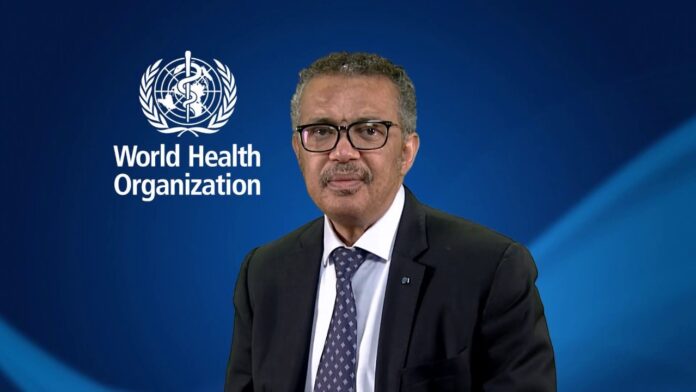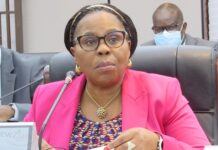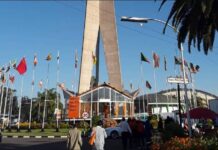Sydney Kawadza
The World Health Organisation is calling for individual property waivers to accelerate the production of COVID-19 vaccines.
In his address to the Economic Commission for Africa 2021 Conference of African Ministers of Finance, Planning and Economic Development underway in Addis Ababa, Ethiopia, the WHO Director-General, Dr Tedros Adhanom Ghebreyesus called for the ratification of the treaty for the establishment of the African Medicines Agency.
He added that African countries need to invest in local manufacturing as part of the national manufacturing policy adding that the major lesson learnt from the COVID-19 was that health is not a luxury but a fundamental human right. And the foundation of social, economic, and political stability.
“We want to distribute the vaccination and distribute fairly. We have met progress on the first and now we’re tackling the second. We have vaccines but production needs to be scaled up.
“To deal with this, companies should share intellectual property, know-how and data with other qualified vaccines manufacturers, including in Africa,” he said.
Ghebreyesus said the WHO had established the COVID-19 Technology Access pool to accelerate the development and manufacturing of products needed to fight the pandemic, including vaccines while removing barriers to accessing the products.
“The fact is we’re not taking advantage of existing manufacturing capacity. Many countries already have this capacity and can start producing their own vaccines if intellectual property rights are wavered under the agreement as proposed by South Africa and India to the World Trade Organization.
“WHO welcomes this proposal. The trips agreement was designed to allow for intellectual property rights sharing in cases like this. Now is the time to use this emergency provision.
“The development of vaccines against the coronavirus must be help for all. No one is safe until we’re all safe. That is not a slogan, but a hard reality.
“As long as the virus keeps circulating it will mutate. The only way to keep this from happening is to distribute vaccines equitably to all countries. No country can vaccinate its way out of the pandemic. Not even the wealthy ones.”
Ghebreyesus said the most effective and strategic way to stop transmission was vaccinating health workers and the most vulnerable in all countries, rather than the entire populations of just a few countries.
“But even with the vaccines we still have a long road ahead. Interest is ongoing and putting pressure on health systems, societies and economies. Disparities will only further slow global and regional recoveries,” he said.
“Travel and many things are disrupted by the pandemic. That hurts industry, business, large and small and those that work in the informal sector.”
According to the World Bank for every month that the vaccination is delayed in reaching the African continent $13.8 billion is lost.
“We have seen how African countries that rely on imports are particularly vulnerable to timely access to essential health products during the pandemic. Ultimately, Africa needs to be able to meet its own needs for vaccines and other essential will health products.
“That means financing local manufacturing capacity, comprehensive regulation and sustainable supply chains. Much of this is already discussed and planned for such as two days’ meeting. I will go into detail about that in a bit.
“The COVID-19 pandemic has underscored the critical gap in manufacturing as a whole. While Africa represent 16 percent of the world’s population, it represents less than 0.1 percent in the world’s vaccine production.
“It is important to note that vaccine manufacturing can be done in step-wise approach. Starting with fill and finish initiatives and then can grow to full manufacturing capacity.
“There is evidence that we can repurpose for full-scale production. Other countries can do the same. Increasing local production capacity in Africa can improve equitable access to COVID-19 vaccines.
“Over the long-term and expand global manufacturing capacity. Strengthening local capacity to produce safe, effective, affordable products requires a strategy holistic approach to business, regulatory and technical issues.”
Ghebreyesus said the WHO was working with the African Union to establish the African Medicine Agency.
“They will give the Region the ability to regulate medical products, enhance regulatory oversight and facilitate access to safe, efficacious and affordable medical products across the continent I call on all to sign on to the Treaty, but not only for technical support, there is a need for financial catalytic funding to African agencies.
“We need no additional proof of the importance much the African agencies than the present crisis, which again his reinforced the need for equitable access to vaccines and therapeutics.”
The WHO is working with the African Vaccine Initiative which works with the private sector and academic institutions to create an enabling environment for vaccine manufacturing with the participation of 12 African countries.















